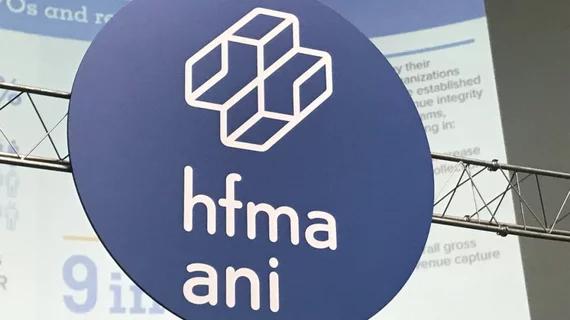Healthcare finance leaders are most focused on technological improvements in revenue cycle management (RCM) over the next year, while almost all are concerned about how the increasing number of self-paying patients will affect their organizations.
Some 125 CFOs and revenue cycle executives responded to the Healthcare Financial Management Association (HFMA) and Navigant survey released at the HFMA’s 2017 conference in Orlando. When asked about their RCM priorities, 79 percent cited areas which involve or are enabled by technology, like analytics, electronic health record (EHR)-enabled workflow or reporting, revenue integrity, and coding and physician/clinician documentation.
Accordingly, almost 75 percent of respondents said their budgets for RCM technology would be increasing, included 77 percent of under-100-bed hospitals and 78 percent of 100 to 500-bed hospitals. What remains a challenge, however, is leveraging that new tech: 51 percent said their organizations can’t keep up with EHR upgrades or can’t maximize functional improvements, and 41 percent said they don’t have a way to track the effectiveness of their technology enhancements.
“Healthcare providers are actively searching for technologies which advance the quality, efficiency, and fiscal viability of care delivery in order to respond to ongoing reimbursement and resource constraints,” Mary Beth Briscoe, MBO, CFO of UAB Hospital in Birmingham Alabama, said in a statement. “As new technologies are implemented, it is critical to understand and plan for linkages across clinical and financial activities to optimize workflow and reporting in both environments. By adopting a holistic approach to technology evaluation and design, providers should benefit from automation, scale, and process improvement, thus positively impacting quality and financial outcomes.”
One of the common themes of the HFMA conference this year was concern over increases in uncompensated care as patients have more responsibility for payments through high-deductible health plans. The survey results backed up that trend, with 90 percent of respondents believing consumer responsibility for costs will continue to affect their revenue. Almost twice as many rural executives (58 percent) than urban CFOs believe the impact will be significant.
More self-paying patients has providers focusing more on engagement through portals. A large majority (93 percent) reported offering an online payment portal and 63 percent have cost-of-care estimation tools. Taking proactive steps to identify cash-strapped patients remained elusive, however, with just 14 percent using advanced modeling tools for “segmenting and predicting propensity to pay.”
“It is essential for healthcare leaders to apply a discipline to patient financial communications. This should include when and where conversations may be conducted, who should be engaged, and guidance for discussing issues such as financial assistance and prior balances,” said HFMA’s director of healthcare finance policy, Sandra Wolfskill.

